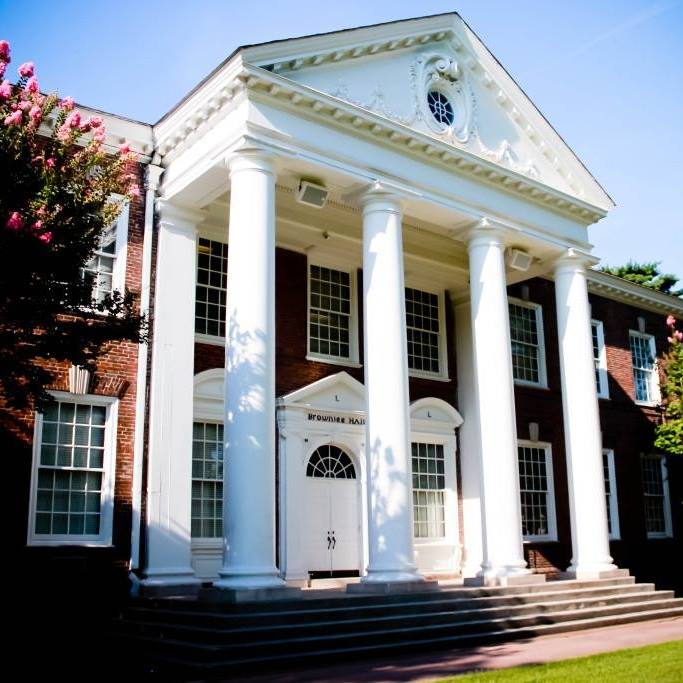Students at LeMoyne-Owen College will have the opportunity to increase dialogue in Memphis regarding HIV prevention and care, and to also contribute to the nationwide fight for equity and wellness.
The Black AIDS Institute (BAI) has partnered with the school for the launch of its Black HIV Epidemic (BHIVE) program. LeMoyne-Owen was chosen along with Jarvis Christian University, Voorhees University, and Johnson C. Smith University for the Historically Black College and University (HBCU)-centered consortium.
BHIVE is funded by the Health Resources and Service Administration (HRSA). Officials said the goal helps in their mission to end the HIV/AIDS epidemic by engaging with students at these universities through education and internship programs.
Grazell Howard, board chair at BAI said they have the challenge and the opportunity to “revolutionize how we prevent and care for persons living with HIV.” She noted that these people are “thriving and living,” but that they also face the same morbidities that Black people do.
“We can no longer just talk about HIV,” Howard said. “ We have to speak about HIV and Black wellness in ways that our entire Black community can hear them.”
Shelby County has historically had one of the highest new infection rates for HIV in the nation. The Shelby County Health Department posted a notice on its website in May saying it had noted an “alarming increase in newly diagnosed cases of HIV in our community. Officials said the highest increase affected people aged 14 to 45, and was not “spread evenly throughout the county.”
According to AIDSVu , Black people accounted for 84.1 percent of new diagnoses in Shelby County in 2021, while accounting for 49.8 percent of the population.
The Black community is sometimes thought of as “diseased-burdened,” said, Howard. The prevalence of such problems as infant mortality and maternal child health is not because Black people “are so sick,” she said, but rather because these communities have been historically and systemically neglected in diagnoses, treatment, and care.
The HIV virus affects those in minority populations more than others, but advocates and community leaders say that the “problem has never been strictly medical.” In 2023, James E.K. Hildreth, president of Meharry Medical College, said a broader approach is required, specifically honing in on community leaders and organizations and the role they play in ending the virus.
“To truly end the epidemic, we need community solutions that work in the context of those communities,” Hildreth said. “We also need to have communities work hand in hand — scientific community and healthcare providers.”
Howard said that being unapologetically Black and practicing activism every day has always been at the center of the work, but now they are adding revolutionizing treatment, prevention, and intergenerational care to their mission and message.
“We must be multi-generational in the message, and we must be true to ourselves,” Howard said. “We have to sterilize stigma within the race. What do I mean by that? We cannot have homophobia, transphobia, and xenophobia.”
Howard said BAI is “radically partnering” and that this is where engaging students at colleges like LeMoyne-Owen proves to be both important and intentional, because HBCUs have long been bases of the Black community. The partnership allows them to bring communication and curriculum that can engage the Black community culturally.
“Historically Black colleges are hubs and nuclei in Black communities, whether you’re a college degree person or not,” Hildreth said. “Long before you and I were born, people would come to that campus, because that’s where the Black brilliant minds were. That’s where we could go to speak and think and create.”
BHIVE offers an approach that Howard said is “unapologetically Black.” The curriculum seeks to dismantle stigma in the race with a six-module course with components to be completed online and with practicum and internship opportunities available in the community.
“The community is friends to a campus and campus is friends to a community,” Howard said. “That will be this kind of symbiotic relationship which can go beyond HIV. If we do well in HIV, we’re going straight to wellness. If we can tackle HIV in our community and bend the tide of the virus, we can bend the tide for everything else. If we have a lot of pastors and university presidents — as they have at the schools I have named — we will be better off, because those leaders are courageous enough to know an HBCU campus is the hub for everything that impacts a community.”
